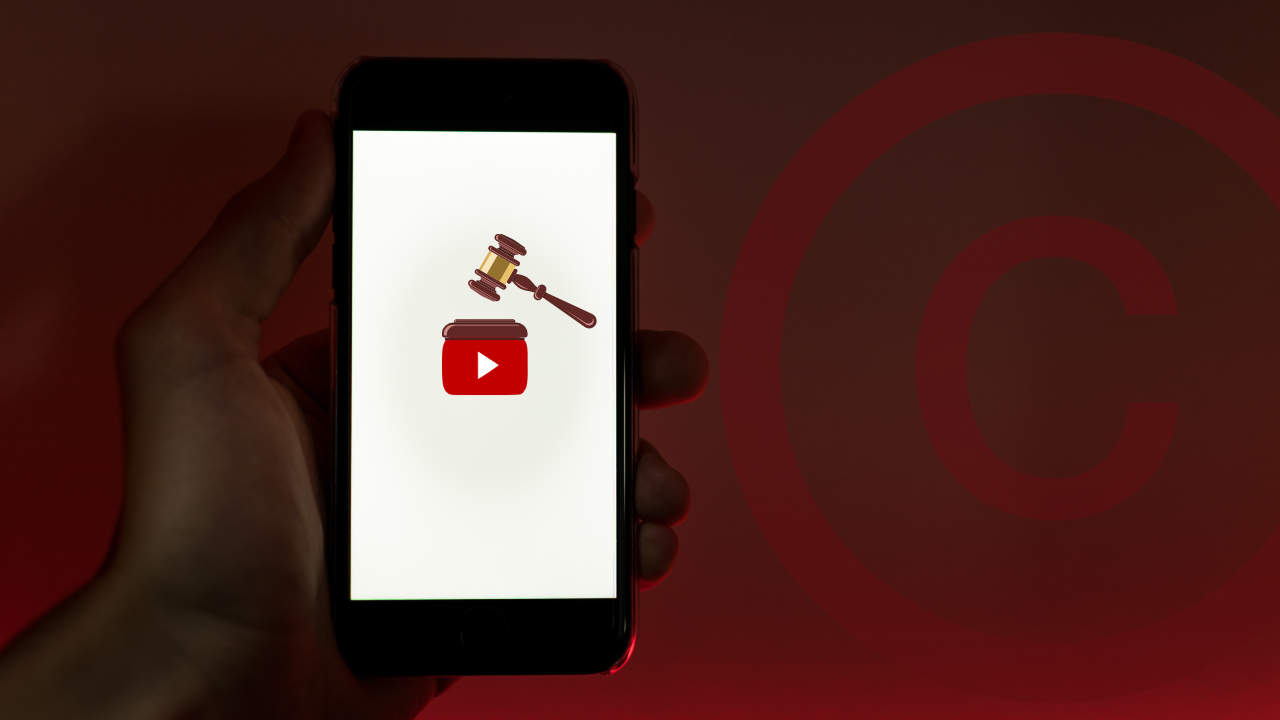
There’s no denying the appeal of YouTube as a posting platform for online content. Because of its ubiquitous nature and extensive search capabilities, it’s easy for PEG stations to direct viewers there to view programming, particularly Video on Demand content that needs to be securely hosted somewhere that all residents can access easily. But what happens when YouTube removes your government meeting coverage or other programming due to supposed copyright infringement?
Are you familiar with YouTube’s Community Guidelines?
YouTube has a list of Community Guidelines that restrict the type of content allowed on the platform. You can drill down for more specific policies, but the rules generally don’t allow content featuring spam or deceptive practices, sensitive content, violent/dangerous content, regulated goods, and misinformation. But YouTube also has a list of legal policies covering topics including copyright, trademark, defamation and more.
How do YouTube copyright claims work?
Remember, the process works both ways. Your station can submit a copyright removal request (aka takedown notice) if your PEG channel content is being posted without your authorization. This is the action to take if you want that content removed. Another option: You can submit a Content ID claim. This can also block content, but it’s more commonly used to monetize content through advertising, which means the content can still be viewed on YouTube.
What can trigger a copyright removal request toward your city council meetings?
One possible culprit is that there is copyrighted background music playing before the meeting starts or during a break. Perhaps a member of the community presents something containing copyrighted material during the public comments portion of your city meeting. Unfortunately, another possibility is that someone submitted a copyright removal request because they simply don’t want the content of the public meeting to remain, well, public. If your city only makes on-demand council meeting recordings available via YouTube, this claim would essentially cut off the public’s access to this information.
What are YouTube copyright strikes and what happens if your PEG station’s account gets one?
When another party submits a copyright removal request against your channel, YouTube legally has to take action and process the request. If the platform determines that the request is valid, YouTube has to remove the video of your city council meeting. And if that happens, your channel gets a copyright strike.
After your first strike, YouTube will require you to complete a short Copyright School course. It takes 90 days for a copyright strike to expire – but too many copyright strikes can lead to the termination of your account and the removal of all your uploaded videos. Plus, you won’t be permitted to create new channels.
Can you resolve a copyright claim and restore access to your council meeting video?
YouTube does offer a few ways for a PEG station to resolve a copyright strike. For example, you can submit a copyright counter-notification, a legal request for the platform to reinstate your content, if you feel your council meeting was removed in error. You can also contact the person who is claiming copyright infringement and ask for a retraction.
Can your station proactively avoid the possibility of drawing a copyright claim?
Before your PEG station posts any public meetings on YouTube, make sure the use of any copyrighted material is considered fair use. According to the U.S. Copyright Office, the fair use doctrine allows the use of “limited portions of a work including quotes, for purposes such as commentary, criticism, news reporting, and scholarly reports. There are no legal rules permitting the use of a specific number of words, a certain number of musical notes, or a percentage of a work. Whether a particular use qualifies as fair use depends on all the circumstances.”
Then there’s public domain. Some content is not protected by copyright law, such as official U.S. documents. For example, audio, video, and pictures from NASA are not subject to copyright law (though the NASA insignia itself is not in the public domain). Otherwise, creative materials enter the public domain after their copyrights expire.
In the U.S., book copyrights expire 70 years after the author dies, while movies published before 1978 hold copyright protection for 95 years. In early 2024, it was big news when the copyright expired on Steamboat Willie, a cartoon from 1928 that featured Mickey Mouse and Minnie Mouse. That’s right, those versions of the iconic characters are now in the public domain, though Disney still holds the rights to more modern versions and content.
Now, if someone adapts content from the public domain, the new version may have its own copyright protection. In other words, don’t edit multiple scenes from Romeo + Juliet (1996) into your programming just because it’s based on a play from William Shakespeare. Finally, remember that copyright status can change from country to country.
Are there alternatives to hosting your city council meetings on YouTube?
Of course, the easiest way to avoid potential YouTube legal woes is to simply not use it. Hosting your city council meetings and other Video on Demand content on your own server puts your station in control, ensuring that the public won’t lose access to its public meeting archive. This route is easier than you think, as all-in-one, cross-platform video servers, as well as cloud-based content delivery services, have become more affordable and user-friendly. Cablecast offers its own solutions, anchored by the Cablecast REFLECT content delivery service, which allows you to stream your live and on-demand content online to unlimited viewers. You can even host your programs on turnkey mobile and OTT streaming apps for the on-the-go access and device parity that YouTube viewers have become accustomed to. To learn more, get in touch with our team.
Connected Communities Summit: Can Cities Use Institutional Networks (I-Nets) For Secure IP Video Transport?
Wondering if your city can leverage existing infrastructure to modernize government service delivery? Nick Brandt explores the use of I-Net for IP Video Transport to live stream City Meetings.








